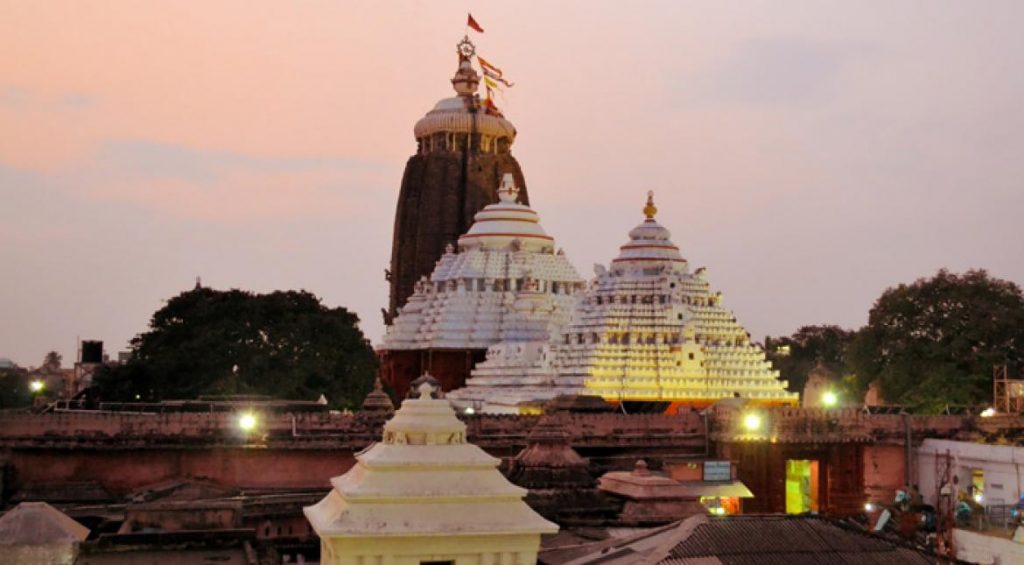God does not live in temples, mosques or churches. The believer has the Omnipresent in her/his heart, not within some stone walls. Faith is truly a very personal experience. Religion is the opium of the masses. These words may sound clichéd but they surely make sense to anyone with an open mind. Therefore, when the Supreme Court ordered a review of management systems of temples across the country, we all thought it has come as a good omen. Too many complaints about unholy happenings in what ought to be the most sacred of institutions are coming up on a regular basis. However governmental action was found wanting as many would not approve of it, possibly terming it as unwanted interference. The very faith that supposedly sustains social life is called into question by the scandalous and greedy actions taking place at various prominent temples, and it is high time things were set right. The Lord Jagannath Temple at Puri is one such great example. Individual bureaucrats and the temple’s servitors do every kind of unjustified acts but the government is pulled in for no reason whatsoever.
The apex court intervention has come following the filing of a PIL over some serious complaints in the Jagannath Temple and elsewhere. The reports about the loss of keys to the Ratna Bhandar and a claim that it was missing for many years have come as a major shock to the faithful spread large around the region and beyond. The district Collector is the custodian of the keys, but over the past years several Collectors have changed place. The matter was brought to light by the present Collector, and all are unsure if he deserves a pat. The previous Collectors were either ignorant about this or were taken for a sweet ride by vested interests of subordinates colluding with people doing different services to the Trinity. It could not be that the keys disappeared into thin air. Notable also is the fact that after the SC order, the collections at the temple recorded a multi-fold increase in a matter of a day. Such minor but significant events point accusing fingers at not only successive Collectors but also the chain of chiefs of Sri Jagannath Temple Administration (SJTA) and, most importantly, at the various levels of servitors. Without active help and cooperation of these Temple insiders, no artefact (whether from inside or out of the Ratna Bhandar) could possibly have been displaced (stolen?).
Several other allegations about wrongdoings were coming up from the Puri temple for the past few years. The latest, this Monday, was of the arrest of a servitor for alleged groping of a female devotee when lights were switched off for puja. A short while ago, a couple from Mumbai was at the receiving end of the anger of a servitor as they refused to meet his high demand for money for his services.
The world’s richest temple, the Tirumala Tirupati Devasthanams, too, is embroiling itself in major scandals of late. A former chief priest has raised the suspicion that a high-value pink diamond that went up for auction in the West recently belonged to the temple and might possibly have been smuggled out. He says he had not seen the precious diamond, occasionally used for rituals, in recent times. He has also alleged that there have been massive fraudulent activities relating to temple funds and administration. Similar allegations are raised against the Vaishno Devi temple in Jammu, the Somnath temple in Gujarat and the Sree Padmanabhaswamy Temple in Kerala’s capital, too. The last one is cited as being among the richest temples in the world by virtue of the valuable gifts from devotees that the temple holds in its treasure trove. The complaints are with the Supreme Court for some years now.
It is common knowledge that temple administrations function in a loose manner, though there were effective checks and balances in the distant past. As life got corrupted over the years in every conceivable way, the seats of divinity obviously are not immune from its impact. An atmosphere exists wherein people get way with their actions and the Deities are helplessly incapable to protect themselves against the onslaught of extreme greed of humans. Even the present Supreme Court order to the Centre to appoint a review panel to go into the administration of temples may have a limited impact unless the Centre takes the matter seriously. Critics may exhort government to do its job without waiting for a court order or intervention every time when things go seriously wrong. Others may differ on this aspect. Religious activities and matters pertaining to an individual’s faith should best be left at the citizens’ care. Government, at the taxpayers’ cost, has no business in operation of places of religious importance.
It is also true that mostly it is only Hindoo shrines which need scrutiny in matters of administration. This may not apply to institutions of other religions since they are generally well taken care of by the faithful who care. Both Christian and Moslem institutions receive hefty funds as donations from believers from within the country as well as from abroad. However, they seem to be more transparent and the people in charge seem as more responsible believers of their respective faiths. Unfortunately, Hindoo religious establishments are plagued by every kind of corruption. The best way forward could be for the government to completely opt out of any responsibility concerning these God forsaken places of worship and stop spending hard-earned taxpayers’ money on them. Your religion; you handle.
